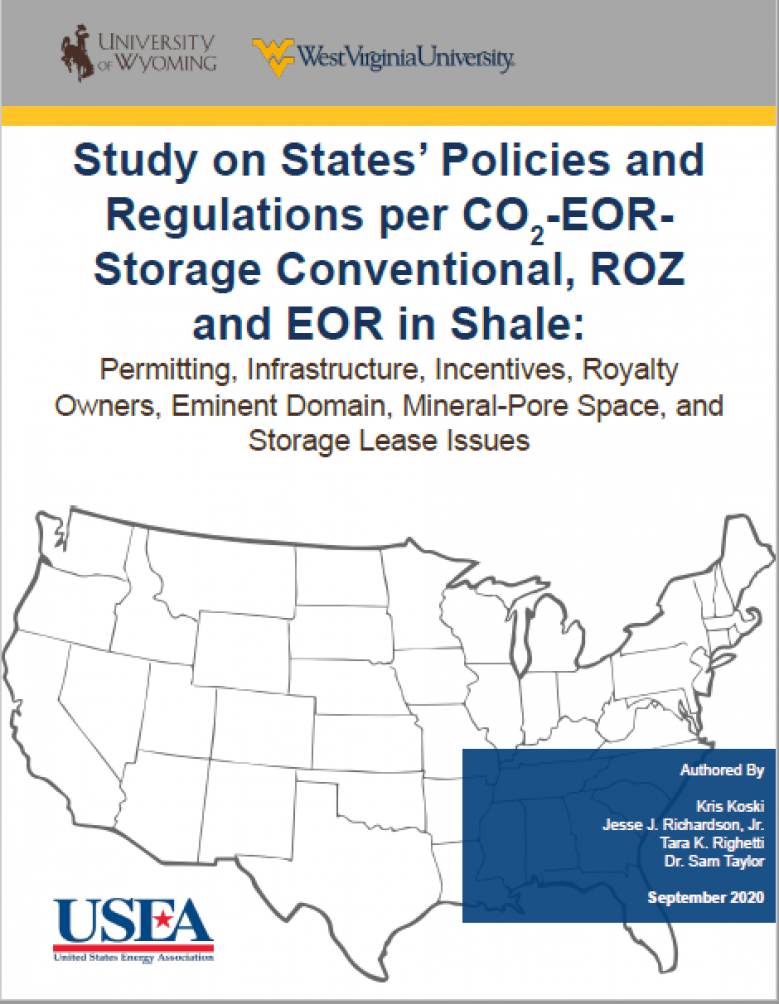With the help of the University of Wyoming and West Virginia University, USEA released a "Study on State's Policies & Regulations per CO2-EOR Storage Conventional, ROZ and EOR in Shale: Permitting, Infrastructure, Incentives, Royalty Owners, Eminent Domain, Mineral-Pore Space, and Storage." This study evaluates laws, policies, and regulations governing CO2-EOR, associated CO2 storage operations, and geologic storage across twelve states and onshore federal lands. This study principally includes two regions: the eastern region, comprised of the Illinois basin and the Marcellus shale region; and, the western region, comprised of the Permian Basin and Rockies regions. In anticipation of expanded interest in CO2-EOR as a result of the amended 45Q tax credit and recently released draft treasury regulations, it is increasingly important for legislatures and policy makers to understand legal and regulatory challenges to a more integrated and widespread implementation of CO2 storage. This project provides comprehensive and comparative analysis of four dimensions of CO2 law, regulation, and policy:
1) land use, mineral, water, and pore space rights;
2) regulation of CO2-EOR and CO2 Pipelines;
3) eminent domain; and
4) Geologic CO2 Storage and Incremental Storage Regulation.
The study suggests opportunities to harmonize energy policies and address regulatory gaps and inconsistencies. The aim of this study is to facilitate better understanding of the legal underpinnings that frame risk, uncertainty, and investment in CO2 utilization and storage infrastructure and projects, and to provide a roadmap for changes which are conducive to regional project development.
| Attachment | Size |
|---|---|
| 5.6 MB |


